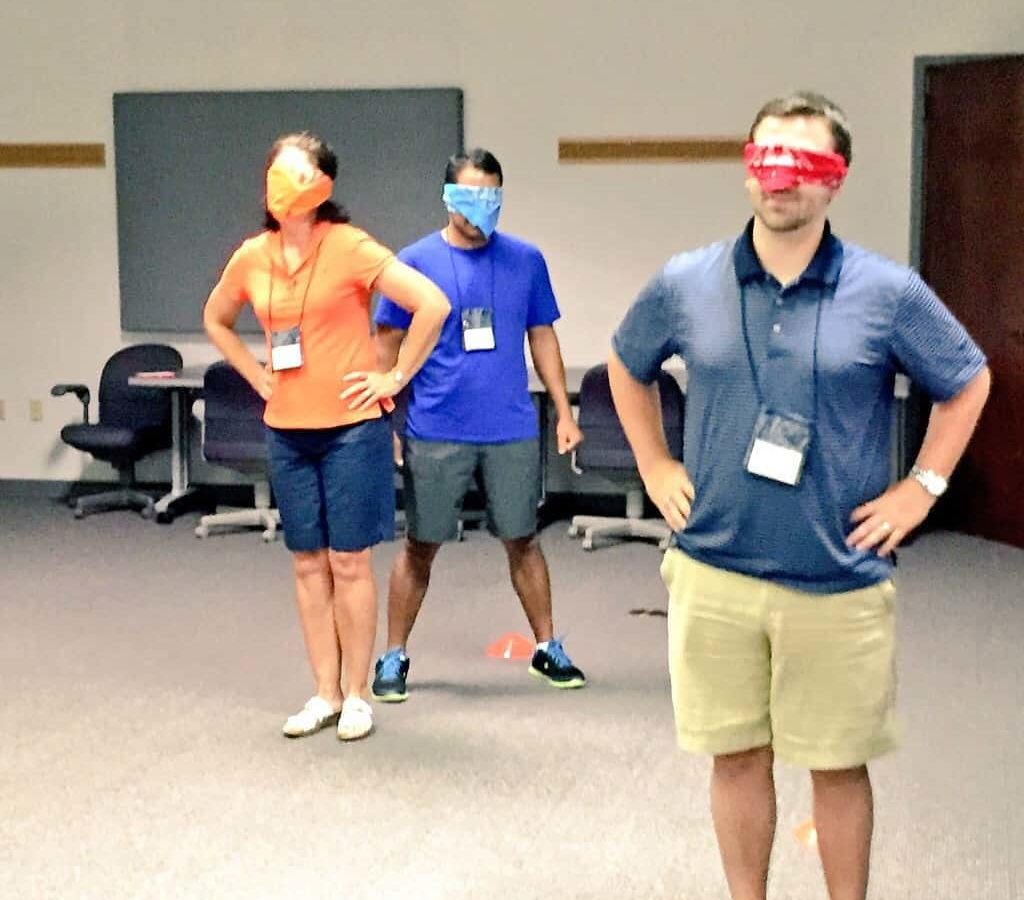

With the launch of new academic year, teachers across the state will find new and innovative ways to better their instruction to increase student engagement and performance. With most professions, the strategies over time change. In education, these changes seem to happen almost annually; however, with decreasing financial support for professional development, it often falls by the wayside, leaving educators stagnant in their practice.
If we are to prepare our students for the 21st century jobs available to them—highlighting communication, collaboration, critical thinking, and creativity—our profession should epitomize these four Cs, and that will only happen with high-quality, personalized professional growth as teachers, leaders, and advocates.
For me, the N.C. Center for the Advancement of Teaching has been a place to reignite my passion, the teacher leader model has provided a professional pathway (more on that tomorrow here at EdNC), and the Beginning Teacher Network has given my work a larger purpose—to use my voice to impact public policy.
The N.C. Center for the Advancement of Teaching: A place for teachers to reignite their passion
So, when an opportunity presents itself, you take it.
This summer, I spent a week at the N.C. Center for the Advancement of Teaching (NCCAT) for their session on Teaching Generation Z. The session provided insight into major developments in the world of education: gaming to lift student motivation, imaginative learning to promote conceptual understanding and digital citizenship, and new learning management systems to build college and career ready graduates. We learned convenient ways to integrate technology in our classrooms.
“Sandbox” time was provided for us to explore and collaborate with colleagues on a wealth of tools we can use with this particular generation of students—glued to their mobile devices and getting their news updates from social media. This particular NCCAT gathering provided a unique, daily cross-session collaboration for play-testing teacher-created games as a part of their Teacher-Quest session, helping to identify key elements of a game and apply them to instructional objectives.
While the wealth of systems sharing will directly impact my instruction this year, the networking component was instrumental in the success of this program. Being surrounded by positive-minded colleagues rejuvenates the desire to infuse my love of learning into my classroom.
NCCAT in Cullowhee has been serving teacher’s need for professional growth since it opened in 1986, after the 1983 N.C. Teacher of the Year, Jean Powell, spoke to the Commission on Education and Economic Growth testifying about the need for educators to have a place they can go to reignite their passion and creativity for their craft. The sessions at NCCAT are dynamic in nature, and change from week-to-week to fit the varying needs of teachers. With help from NCCAT alumni and expert practitioners, these programs provide teachers with readily available resources to enhance their practice and increase their student achievement. The increased need for effective professional development for teachers in our state led to the opening of NCCAT’s eastern campus on Ocracoke Island, spanning the availability of these resources from the mountains to the coast.
However, the center has not gone without challenges. With funding coming from the legislature, these gems of N.C. teacher development have found themselves on the chopping block. Just last year, Gov. McCrory’s proposed 2014 budget called for a June 30 closing of the organization, and it was only the lobbying and support from countless teachers affected by these necessary enrichment opportunities that ensured the legislature’s continued support.
With the political tension surrounding teacher pay, career status, and support positions, it is easy to overlook the victories. The need for NCCAT and a place for teachers to go for professional development remains as vital today as it was in 1983.
Launching the Beginning Teacher Network
Having been through the N.C. Teaching Fellows program, my educational experience began as one with a policy-mindset. University-level forums provided cohorts of fellows with monthly updates on instructional strategies, digital learning tools, and legislative events from a wide array of presenters—from master classroom teachers to policymakers from the North Carolina Department of Public Instruction. These opportunities were invaluable to shaping my personal views, educational philosophy, and classroom practices. The thought of not having these opportunities for continued professional growth was a frightening realization many of my colleagues and I were coming to terms with; and upon entering the profession with a climate plagued with negativity and ill-will, these experiences seemed to be a necessity.
So we acted. As a group of educators on the brink of our first-years, we brainstormed an idea for a program that would network novice educators interested in honing their practice while developing a better, nonpartisan understanding of educational policy and its personal impact on the classroom, and more importantly, students’ learning. After reaching out to a number of organizations, the Public School Forum of North Carolina accepted the challenge and agreed to develop and facilitate the Beginning Teacher Network while encouraging teacher-led sessions.
The idea was simple; structured monthly meetings would be designed and delivered giving participants the opportunity to meet with local and state policymakers as well as education leaders and supporters, to engage firsthand in critical issues facing N.C. schools and student success.
In preparing for the program’s spring 2015 launch, the need for this opportunity was extremely evident. With the Teaching Fellows Program, the state’s only teacher recruitment program, dissolved a year earlier, and the 2014-15 budget threatening yet another year without a teacher pay raise, and the elimination of educational supplement pay and tenure, a career in education was less than ideal; not to mention the almost inevitable pessimism attached to veteran teacher status. Though nearly all districts support their BTs with a mentorship program, these programs often lack the time, staff, or venue to thoroughly hear and respond to teacher voice much less leverage it for change.
It was soon realized that supporting the beginning teacher was a critical issue across North Carolina and nationwide. The Beginning Teacher Network would have the potential to grow BTs into career professionals who remain beyond their first three years. Additionally, teachers who are informed, policy-conscious, teacher leaders in the classroom and school will be produced.
With that in mind, the five month 2015 spring launch focused predominately on policy and educator support, connecting BTs with champions such as State Education Superintendent Dr. June Atkinson, NCAE President Rodney Ellis, and Wake Superintendent Dr. Jim Merrill. The program was deemed a huge success by the participating educators and the Public School Forum of North Carolina.
The Public School Forum is now in the process of accepting applications for the 2015-16 school year cohort of fellows. Moreover, the Forum will concentrate on expanding the Beginning Teacher Network to additional districts by the spring 2016. With the need for professional support for beginning teachers growing, this program looks to be the solution in informing, networking, and supporting beginning teachers across the state.
Teachers are the experts on what happens in the classroom.
They need opportunities to continue to learn the craft of teaching.
They need a career pathway.
They need a way to inject their expertise in policy changes.
This is professional development for the 21st century.



